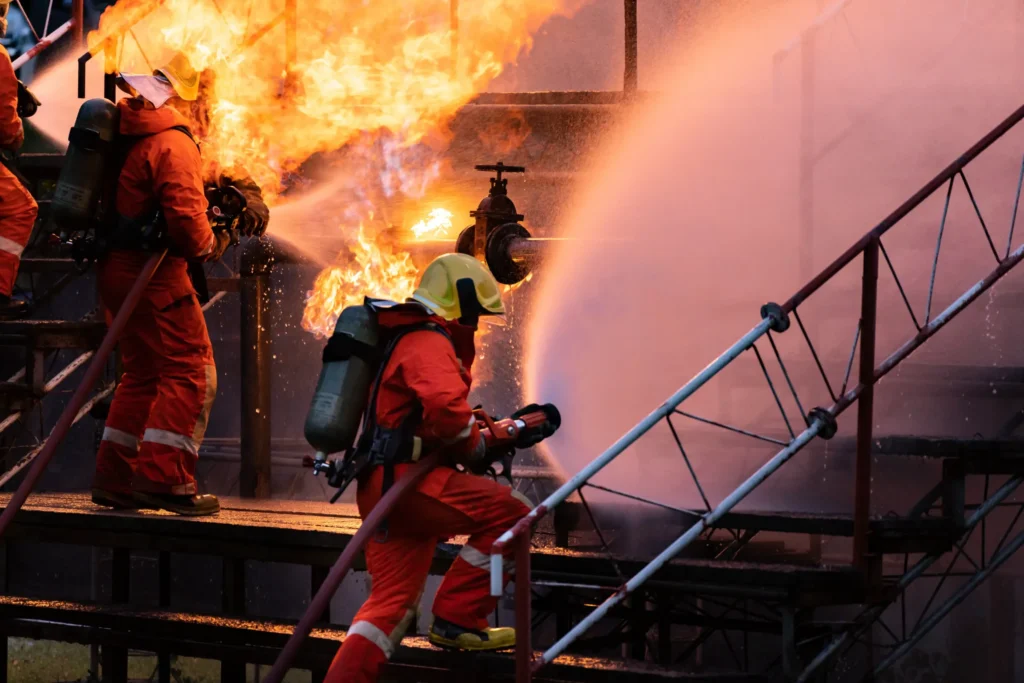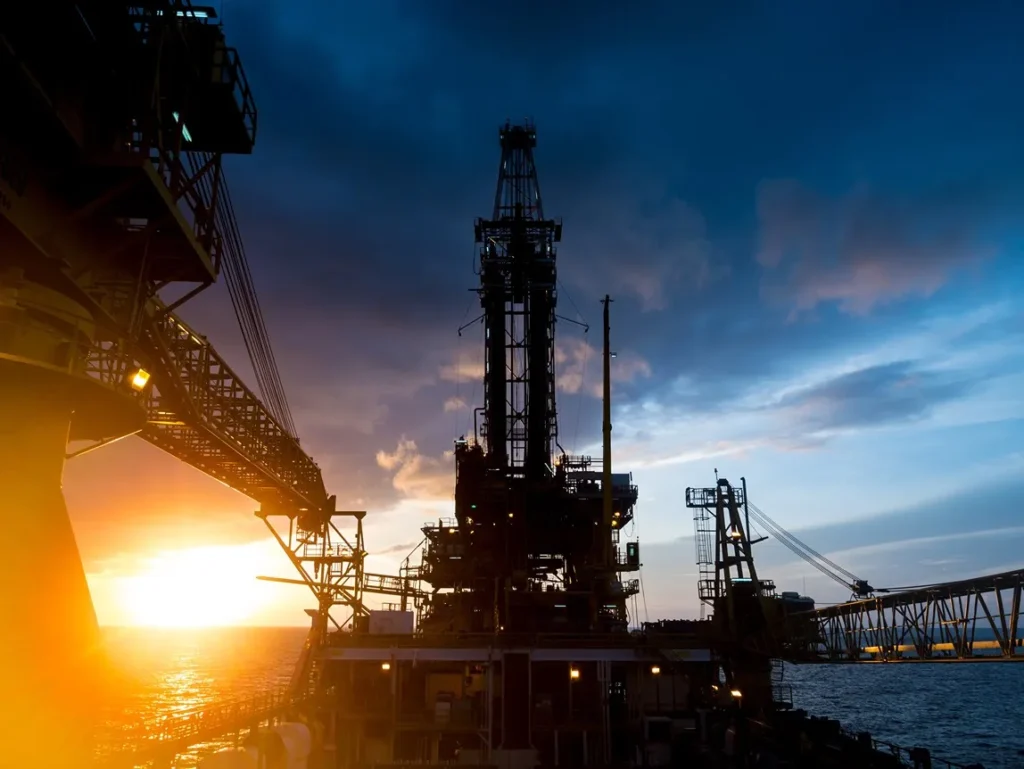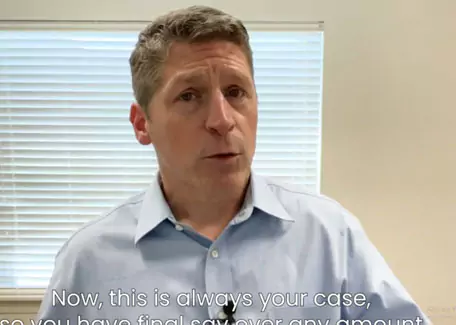
If you or someone you care about has suffered an injury from an oil and gas industry accident in Baton Rouge, you need a law firm that understands the intricacies of these cases. Big River Trial Attorneys are well-versed in the complexities of the oil and gas industry and are committed to advocating for your rights. Our legal professionals are prepared to guide you through the process of your case, ensuring you are informed and confident every step of the way.
We are dedicated to fighting for the compensation you are entitled to receive. Do not delay in seeking the legal support you need. Call us today at 225-725-6000 for a complimentary case evaluation, and let us help you take the decisive step toward protecting your rights and interests.
Understanding the Risks in Baton Rouge’s Oil and Gas Industry
 The oil and gas industry, a cornerstone of Baton Rouge’s economy, is marred by a glaring issue – safety. Workers, from oilfield laborers to gas extraction technicians, face a multitude of hazards in oil and gas companies. These risks are not just confined to the immediate dangers of the workplace, but extend to long-term health implications, making oil companies and the industry one of the most dangerous in the United States.
The oil and gas industry, a cornerstone of Baton Rouge’s economy, is marred by a glaring issue – safety. Workers, from oilfield laborers to gas extraction technicians, face a multitude of hazards in oil and gas companies. These risks are not just confined to the immediate dangers of the workplace, but extend to long-term health implications, making oil companies and the industry one of the most dangerous in the United States.
Hazardous Chemicals and Toxic Exposure
Exposure to hazardous chemicals in the oil and gas industry is an alarming reality that workers face every day, including those employed by gas companies. From the immediate symptoms of headaches, nausea, eye irritation, and chemical burns, to long-term health issues such as respiratory problems and cancers, the effects can be debilitating. The presence of flammable gasses and vapors adds another layer of risk, posing serious dangers when released from industry equipment.
Adherence to Occupational Safety and Health Administration (OSHA) regulations plays a significant role in mitigating these hazards. These regulations are designed to prevent catastrophic incidents such as chemical and electrical burns, spinal cord damage, and traumatic brain injuries. Compliance not only safeguards workers but also fosters a safer working environment in the industry.
Heavy Machinery Accidents
In the oil and gas industry, the use of heavy machinery is commonplace. However, these machines can also be a source of common workplace injuries, leading to outcomes as dire as severe injuries such as dismemberment or even death. Accidents can occur due to equipment malfunctions or falling objects, and establishing responsibility in such cases requires legal know-how.
Minimizing injury risks from heavy machinery is achievable by implementing safety measures, such as wearing protective gear and adhering to OSHA regulations. In this high-risk industry, creating a safer workplace transcends responsibility; it’s a necessity.
Transportation-Related Injuries
Transportation accidents, including offshore accidents, pose yet another significant risk in the oil and gas industry. They account for a large portion of fatal workplace injuries, especially in the extraction industries. In fact, nearly half of the industry’s workplace fatalities in 2011 were due to transportation accidents.
This risk is particularly acute for workers in remote locations, where immediate access to emergency services might not be available. Given these circumstances, implementing safety measures and regulations in these areas is of utmost importance.
Identifying Liable Parties in Oil and Gas Industry Accidents
 Determining who is liable in the event of an oil and gas industry accident is a complex process that requires thorough investigation and legal knowledge. In many cases, multiple parties may share responsibility for the incident.
Determining who is liable in the event of an oil and gas industry accident is a complex process that requires thorough investigation and legal knowledge. In many cases, multiple parties may share responsibility for the incident.
Employers and Oil Companies
Employers, including oil companies, have a legal obligation to provide a safe working environment. This includes proper training, equipment maintenance, and adherence to safety regulations. If an accident occurs due to an employer’s negligence or failure to comply with safety standards, they may be held liable.
Equipment Manufacturers
If an accident is caused by defective equipment, the manufacturer of that equipment might be liable. It is the manufacturer’s responsibility to ensure that their products are safe for use and that they meet industry standards.
Contractors and Subcontractors
Contractors and subcontractors are often used in the oil and gas industry for certain tasks. If their negligence leads to an accident, they can be held liable. This can include failing to follow safety protocols or providing inadequate supervision.
Maintenance Providers
Companies responsible for the maintenance of equipment are expected to perform their duties to a particular standard. If an accident occurs because of poorly maintained equipment, the maintenance provider could be found liable.
Government Entities and Regulatory Compliance
In certain situations, government entities might bear some liability, particularly when an accident arises from a lack of enforcement or adherence to safety regulations established by government agencies. One such agency is the Occupational Safety and Health Administration (OSHA), whose guidelines are critical in maintaining workplace safety. If a government entity fails to properly enforce these safety standards, or if the entity’s actions contribute directly to an incident, they could be deemed responsible in a court of law.
Other Third Parties
The network of operations in an oil and gas project often includes a variety of third parties, such as logistics providers, consultants, and other service providers. Their involvement in the day-to-day operations can be extensive, and their actions—or lack thereof—can significantly impact safety and operational efficiency. If a third-party entity’s negligence or oversight contributes to an accident, they might also be considered liable. For instance, a logistics provider responsible for the safe transport of hazardous materials must adhere to strict protocols to prevent accidents during transit. Failure to do so can have dire consequences.
It is crucial for victims of oil and gas industry accidents to engage with legal professionals who have a deep understanding of the industry’s complexity. These attorneys can thoroughly investigate the accident, identify all potential liable parties, and work diligently to ensure that each is held accountable for their part in the incident. Experienced legal representation is invaluable when navigating the intricate web of liability in this high-stakes industry.
Legal Representation for Injured Oil and Gas Workers
 Navigating the legal system can be daunting for those who have experienced offshore injuries in oilfield accidents. With the complexities of the industry and the severity of injuries, legal representation is indispensable. An offshore accident lawyer can manage the legal claims process, identify responsible parties, and negotiate with insurance companies.
Navigating the legal system can be daunting for those who have experienced offshore injuries in oilfield accidents. With the complexities of the industry and the severity of injuries, legal representation is indispensable. An offshore accident lawyer can manage the legal claims process, identify responsible parties, and negotiate with insurance companies.
Beyond legal proceedings, they create a supportive environment, enabling victims and their families to concentrate on recovery.
Personal Injury Claims
Personal injury lawsuits, such as a personal injury case for oilfield workers, offer a pathway to seek financial recovery for their losses. This claim addresses the financial burden of medical bills and lost wages resulting from the injury. However, the process can often require the work of experienced attorneys.
The severity of the worker’s injuries can significantly influence the amount compensated in a personal injury claim. Therefore, having a proficient legal team can be instrumental in securing fair compensation for pain and suffering.
Workers’ Compensation
In addition to personal injury claims, workers’ compensation provides another avenue for financial support for those affected by the oil and gas industry’s inherent dangers. Workers in Baton Rouge’s oil and gas industry are entitled to benefits such as Temporary Total Disability (TTD), which offers financial relief during the recovery period when an employee is unable to work, Permanent Total Disability (PTD), which provides long-term financial support in cases where an employee cannot return to work due to the severity of their injuries, and Death Benefits, which serve as a crucial support system for the families of workers who have tragically lost their lives.
Eligibility for these workers’ compensation benefits is determined by the type, extent, and severity of the injuries sustained, as well as the circumstances of the accident. Given the technicalities and complexities involved in the claims process, experienced legal representation can be invaluable. A knowledgeable attorney can navigate the legal intricacies, advocate for the worker’s rights, and strive to secure all entitled benefits. They can also help in challenging any denials of claims and represent the injured workers in hearings or appeals, ensuring that the compensation received is commensurate with the impact of the injuries on the worker’s life.
Preventing Future Accidents: Holding Companies Accountable
Preventing future accidents is as important as providing post-accident support through legal representation. By holding companies accountable for their safety standards, future accidents can be deterred, fostering a safer work environment for all workers.
Adherence to OSHA standards and the pursuit of punitive damages can achieve this accountability.
Importance of Compliance with OSHA Standards
The General Duty Clause of the OSH Act mandates employers in the oil and gas industry to maintain a workplace free of recognized serious hazards. Specific OSHA standards govern well drilling, servicing, and storage hazards, which employers must comply with to ensure the safety of their workers.
OSHA also publishes a list of the most frequently cited standards in the industry. This list serves as a tool to identify prevalent safety issues and direct initiatives for safety enhancements. Some of the most frequently cited standards in the oil and gas industry include:
- Hazard communication – This involves the proper identification, labeling, and relaying of information regarding hazardous chemicals. Ensuring that workers understand the risks and safety procedures associated with these substances is vital for preventing chemical-related accidents.
- Respiratory protection – The use of appropriate respiratory protective equipment is critical in environments where workers are exposed to harmful dust, fumes, gases, or vapors, to prevent respiratory-related illnesses and conditions.
- Control of hazardous energy (lockout/tagout) – Lockout/tagout procedures are essential for ensuring that machines are properly shut off and cannot be started up again before the completion of maintenance or repair work, thus preventing accidental energization and related injuries.
- Process safety management – This comprehensive approach is designed to prevent and mitigate the release of any substances that could pose a threat to workers or the environment, particularly in complex processes involving highly hazardous chemicals.
- Fall protection – Implementing fall protection systems and training workers on their use are crucial measures to prevent falls from heights, which are a leading cause of serious and fatal injuries in the industry.
These standards can be crucial in ensuring the safety of workers in high-risk environments such as confined spaces in the oil and gas industry.
Pursuing Punitive Damages
Punitive damages serve a dual function in personal injury claims. They punish the defendant for egregious or intentional wrongdoing and deter similar negligence or deliberate harm in the future, thereby ensuring greater industry responsibility toward worker safety.
Not only do courts award these damages to punish the guilty parties, but they also aim to encourage companies to prioritize the well-being of their workers. By imposing substantial punitive damages, companies are incentivized to maintain high safety standards and prevent future accidents, fostering a safer oil and gas industry.
How Big River Trial Attorneys Can Help You
The oil and gas industry in Baton Rouge, while essential to the economy, is fraught with risks. From hazardous chemical exposure to heavy machinery accidents, workers face numerous dangers on a daily basis. Legal representation plays a crucial role in navigating the aftermath of these incidents, from handling personal injury claims and workers’ compensation to ensuring fair compensation. Additionally, holding companies accountable through adherence to OSHA standards and the pursuit of punitive damages can prevent future accidents. At Big River Trial Attorneys, we stand by our commitment to provide exceptional legal support to our clients, helping them through these challenges to a safer future.
At Big River Trial Attorneys, we understand the challenges faced by victims of industrial accidents. We offer a range of services to support our clients, including:
- Free case evaluation, providing a starting point for legal proceedings without financial pressure
- Focused lawyers who are experienced in handling industrial accident cases
- Thorough investigations, including collecting crucial evidence such as photographs and witness statements, to strengthen claims
We are dedicated to helping our clients seek justice and compensation for their injuries.
Beyond investigations, we also have experience in negotiating with insurance companies. We strive to resist low settlement offers and secure fair compensation for our clients. Our legal team can focus on:
- Establishing a clear link between the client’s injuries and the workplace incident to enhance chances of a successful claim
- Assisting clients in navigating workers’ compensation claims
- Ensuring settlements don’t conflict with Social Security Disability Insurance
Thanks to our client-focused approach, we can understand individual goals and provide guidance for industrial accident claims. At Big River Trial Attorneys, we are committed to ensuring just outcomes for our clients by advocating for their rights and fair compensation. Don’t wait — call us today at 225-725-6000.
Frequently Asked Questions
What are some common types of accidents in the oil and gas industry?
In the high-risk environment of the oil and gas industry, accidents can take many forms, each with its own set of challenges and potential dangers. Fracking accidents are among the most prevalent, often resulting from the high-pressure fluids used to fracture underground rocks, which can lead to unpredictable blowouts or well collapses. Fires and explosions also pose a significant threat due to the highly flammable materials and gasses present, which can ignite and cause catastrophic damage on rigs and within refineries.
Transportation mishaps are another common occurrence, as the industry relies heavily on the movement of goods and personnel, leading to collisions involving trucks and other heavy machinery. Workers may also face exposure to toxic chemicals, a hazard that can result in serious long-term health issues upon inhalation or physical contact. Falls from slippery surfaces, high platforms, or due to inadequate safety measures can lead to severe injuries, while faulty or improperly maintained equipment can cause a range of traumas, from lacerations to more extreme cases such as amputations.
Awareness and caution are critical in preventing these incidents, and workers are encouraged to stay informed about the potential hazards to minimize the risks inherent in the oil and gas industry.
How severe are the risks associated with chemical exposure in this industry?
The risks associated with chemical exposure in the oil and gas industry are severe, including respiratory problems, brain injury, paralysis, leukemia, and cancer. Short-term effects can also include headaches, nausea, fatigue, eye irritation, and chemical burns.
What steps should workers take immediately following an accident in the oil and gas industry?
Immediately following an accident in the oil and gas industry, workers should prioritize their safety and health. The first step is to seek medical attention, even if the injuries seem minor, as some symptoms may not be immediately apparent. Reporting the incident to a supervisor or the appropriate company representative is also crucial for official documentation and may be necessary for any future claims. Workers should document everything related to the accident, including taking photographs of the accident scene, if possible, and gathering contact information from witnesses. It is also advisable to contact an industrial accident attorney to understand one’s rights and the potential for legal recourse. Big River Trial Attorneys can provide the necessary legal guidance and support through this process.
How can Big River Trial Attorneys help victims of industrial accidents?
Big River Trial Attorneys can help industrial accident victims by providing a free case evaluation, conducting thorough investigations, negotiating with insurance companies, assisting with workers’ compensation claims, and ensuring settlements don’t conflict with Social Security Disability Insurance. They focus on establishing a clear link between injuries and workplace incidents.
What is the importance of punitive damages in personal injury claims?
Punitive damages in personal injury claims are important as they punish the defendant for intentional wrongdoing and deter similar negligence, thereby promoting greater responsibility for worker safety.



